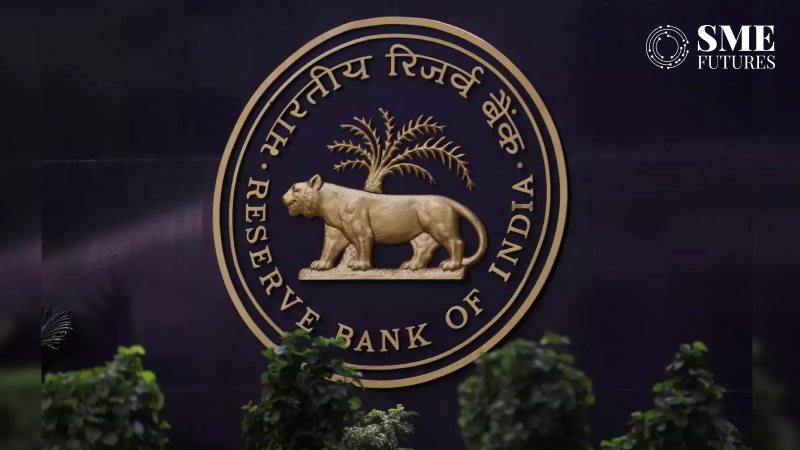TReDS scope expanded to include insurers. What’s in it for MSMEs
Apart from MSME sellers, buyers and financiers, insurance companies are permitted to participate as “fourth participant” in TReDS
Anushruti Singh June 9, 2023

MORE IN News
India’s EV policy sparks industry optimism; anticipate surge in investments
Growth in FMCG to revive post-monsoon, lower food inflation will increase demand
Govt’s electronics component manufacturing PLI to end dependency on foreign suppliers, create jobs
GST has benefited the poor, empowered the states: FM Sitharaman
India likely to be Apple’s 3rd largest market in next 2 to 3 years: Experts
Addition of insurers in TReDS: In a move to improve growth perspective of Indian MSMEs, the Reserve Bank of India (RBI) announced to expand the scope of trade receivables discounting system (TReDS). In this recent development the central bank permitted insurance companies to function as participants, to improve the cash flows of MSMEs.
The RBI issued guidelines on TReDS in December 2014 with the objective of facilitating the financing of trade receivables of MSMEs. Subsequently, three entities started operating TReDS platforms. These three participants are buyers, sellers and financiers. All these together process about Rs 60,000 crore worth of transactions annually.
Based on the experience gained, the RBI expanded the scope of the platform. “Apart from MSME sellers, buyers and financiers, insurance companies are permitted to participate as “fourth participant” in TReDS,” it said in a circular.
Financiers place their bids on the TReDS platforms keeping in view the credit rating of buyers. They are generally not inclined to bid for payables of low-rated buyers.
To overcome this, an insurance facility is being permitted for TReDS transactions, which would aid financiers to hedge default risks, the RBI added.
In their business or operational rules, the TReDS platform operators may specify the stage at which insurance facility can be availed, the central bank added.
“Premium for insurance shall not be levied on the MSME seller,” it said.
The RBI has also expanded the pool of financiers. TReDS transactions fall under the ambit of “factoring business”, and banks, NBFC-Factors and other financial institutions can presently participate as financiers in TReDS.
The Factoring Regulation Act, 2011 (FRA) allows certain other entities/institutions to undertake factoring transactions.
“Accordingly, all entities/institutions allowed to undertake factoring business under FRA and the rules/regulations made thereunder, are now permitted to participate as financiers in TReDS. This would augment the availability of financiers on TReDS platforms,” the circular said.
TReDS platforms facilitate transparent and competitive bidding by the financiers.
What’s in it for MSMEs
According to the proposed announcement, the proposal requires all businesses and institutions covered by the Factoring Regulation Act to act as financiers for factoring operations on the TReDS platform.
Meanwhile, TReDS will now provide secondary market activities, allowing financiers to transfer their invoice portfolios to other TReDS platform financiers.
“To boost the MSME sector, it was crucial to offer them timely finance irrespective of the loan ticket size, keeping in mind their ability to provide collateral and their credit score,” says Ketan Gaikwad, MD and CEO of RXIL (TReDS platform).
According to him, the RBI’s move to permit Insurance Companies as fourth participant on TReDS was a much anticipated move as it will encourage financiers to allocate limits on buyers irrespective of their credit ratings.
“We, at RXIL, are well equipped for this move and look forward to implementing Trade Credit Insurance on live transactions at the earliest. Furthermore, by allowing secondary market operations on TReDS, financiers will be able to offload their existing portfolios to other financiers within the same TReDS platform. This shall support financiers to release their capital and engage in continuous discounting on TReDS. RXIL looks forward to introducing secondary market operations for its financiers, that will help financiers to offload their portfolio and indulge in continuous discounting on TReDS.”
Sundeep Mohindru, CEO, M1Xchange feels the decision will opens up a big market opportunity around trade credit insurance for insurance companies.
“Moreover, with the growing number of buyers and sellers getting on TReDS platforms for invoice discounting, insurance companies don’t have to set up their sales structure to get business. So, business naturally comes to them and hence, the cost of doing business gets reduced dramatically,” he said.
Also, with a lot of data patterns available on TReDS over the years, insurance companies can ascertain about repayment behaviour of buyers based on which they can take a risk call.
“This is because if a financial institution, let’s say an NBFC or a factoring company has discounted invoices which have a 60-day or 90-day cycle, the financier need not wait that long to get their money. Under secondary market operations, they can sell the invoice further to a bank who perhaps is in need of meeting its priority sector lending (PSL) targets and use that capital again to redeploy,” he added.











